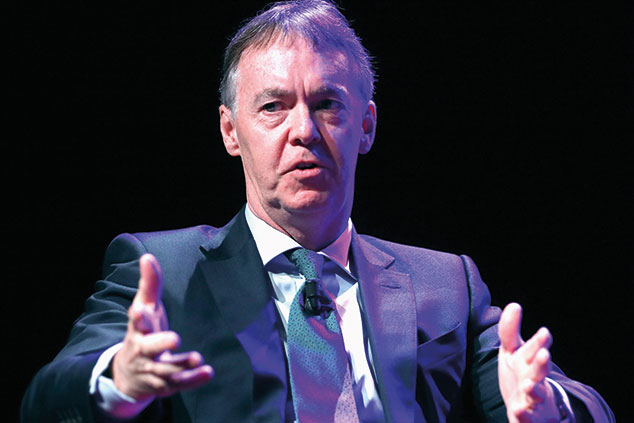
Fewer analysts and corporate raiders means many firms are sitting on gold mines no one knows about.
The battle for control of Sky has been keeping the City entertained. At first, it looked as if control would go to Rupert Murdoch’s Fox, before that was sold in turn to Disney. Then Comcast crashed the party with a higher offer, with rival bids being tabled for the company within hours of each other. The shares have soared, more than doubling in the past year. Some of the wilder speculation suggests the business might be worth £50bn, and if another deep-pocketed bidder comes in for it that might turn out to be true.
We will see how it plays out. One thing is already clear, however. Until the bid battle erupted, the market was clearly undervaluing Sky. From 2015 until the first offer, the share price had drifted down from £10 to £7.50 amid worries over the cost of football rights and competition from Netflix. The value was there. But it took a trigger for everyone to realise it.
Why companies are undervalued
It’s far from alone. In the battle for GKN earlier this year, for example, we suddenly found out that the engineering conglomerate was worth far more than anyone realised. After stagnating for years, once Melrose made an offer it suddenly became clear the company had lots of assets that everyone had been ignoring. Are there other companies the market is completely misunderstanding? There are three reasons for thinking there might be.
First, with so few contested bids in the past two decades it is easy for assets to be neglected. In the 1980s and 1990s, corporate raiders and conglomerates were constantly launching takeovers of listed companies. They would scrutinise a firm, assess its assets, work out what they might be worth, and if the market wasn’t putting a fair price on them they would launch a bid. It was a rough process, and often involved huge amounts of debt, which created its own problems. But it did mean that nothing remained undervalued for long. In the past decade those hostile raids have faded away. We see one or two a year. A company can chug along for years with units that could fetch a high price if they were auctioned off, and no-one notices.
Next, the analysts have disappeared. The major investment banks used to employ dozens of highly skilled experts with the financial and industrial expertise to work out what a businesses was worth and whether the shares were a buy or a sell. Accounts and strategies would be scrutinised in minute detail. If a corporate raider didn’t spot the hidden value in a company, they would. But regulations on how the investment banks charge for their services mean there are now far fewer of those experts than there used to be. The result? Lots of companies are hardly analysed by the City at all – and no-one really knows what is going on inside them.
Finally, Brexit. Global investors have grown wary of British shares as the debate over the terms of our departure from the European Union becomes more and more tortured. Many of them have decided, probably rightly, that until we get our act together it is not worth the hassle of investing in the London market. The result? Compared with many of its peers, the UK is relatively cheap, even though it is home to plenty of big global firms that don’t even trade that much in this country.
Where are the bargains hiding?
It is clear there might well be a few more bargains out there. In which sectors? That’s guesswork. But the pharmaceuticals industry has a few big companies that have been drifting for years, but may well have units or products worth a lot more than anyone realises. So might consumer goods-firms and oil giants. The banks have had a hard time, but their customer base might be worth something to someone. Even the retailers, for all the closures across that industry, may have properties, websites or mailing lists that could suddenly be exploited. We probably won’t know until someone launches a bid. Sky has taught us there is a lot of potential for investors who are patient enough to wait for the real value of a business to be uncovered.